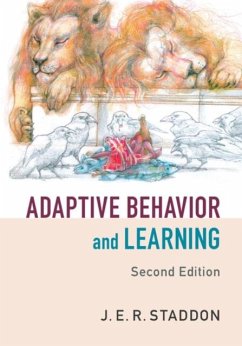
Tip-of-the-Tongue States and Related Phenomena (eBook, PDF)
Versandkostenfrei!
Sofort per Download lieferbar
30,95 €
inkl. MwSt.
Weitere Ausgaben:

PAYBACK Punkte
15 °P sammeln!
When the memory retrieval process breaks down, people wonder exactly why and how such a thing occurs. In many cases, failed retrieval is accompanied by a 'tip-of-the-tongue state', a feeling that an unretrieved item is stored in memory. Tip-of-the-tongue states stand at the crossroads of several research traditions within cognitive science. Some research focuses on the nature of the retrieval failure. Other research tries to determine what tip-of-the-tongue states can tell us about the organization of lexical memory - what aspects of a word we can recall when we are otherwise unable to do so. ...
When the memory retrieval process breaks down, people wonder exactly why and how such a thing occurs. In many cases, failed retrieval is accompanied by a 'tip-of-the-tongue state', a feeling that an unretrieved item is stored in memory. Tip-of-the-tongue states stand at the crossroads of several research traditions within cognitive science. Some research focuses on the nature of the retrieval failure. Other research tries to determine what tip-of-the-tongue states can tell us about the organization of lexical memory - what aspects of a word we can recall when we are otherwise unable to do so. Still other research focuses on the nature of the experience. Each perspective is represented in this book, which presents the best theoretical and empirical work on these subjects. Much of the work is cross-disciplinary, but the topics concern strong phenomenological states of knowing that are not accompanied by recall or recognition of the desired information.
Dieser Download kann aus rechtlichen Gründen nur mit Rechnungsadresse in A, B, BG, CY, CZ, D, DK, EW, E, FIN, F, GR, HR, H, IRL, I, LT, L, LR, M, NL, PL, P, R, S, SLO, SK ausgeliefert werden.













